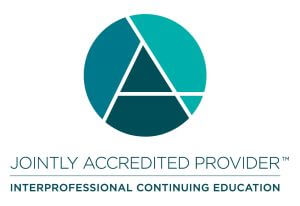Thursday, July 25, 2024 @ 1 pm ET/div>
Maureen D. Lansing, MPH, BSN, RN, CIC, CPPS, Nuria Acosta BA, RN, CCRN-K, CIC, CPPS, and Brigid Constantino, BSN, RN, CIC, CPPS
Post Covid culture between frontline staff and Infection Preventionists needs an enema. An infusion of caregivers trained and entered the workforce during the pandemic, missing out on critical kinesthetic practice and whose primary clinical experience was lacking. Elevating back to basics by infusing creative tactics, infection preventionists can upskill these caregivers and improve patient outcomes. Presentations built on a foundation of slide decks and rote lecturing are no longer the norm and just-in-time reminders may fall on multitasking, unfocused ears. Adult education is improved, reaching more of the audience, by crossing all levels of instruction. When we reimagine activities that engage and promote compliance with Infection Prevention practices, stickiness ensues. Using multimodal stations to teach infection preventionists, we will demonstrate how to develop fun, new ways to practice safe patient care. We will incorporate visual, auditory, tactile, and kinesthetic learning and infuse interpersonal, interactive, and developmentally appropriate coaching, as well as how to use assimilation dialogue considering diversity of staff’s individual language preferences, culture, and cognitive perspectives. Examples of such include tackling microbial contamination using simulated ultraviolet gel and blacklight for patient care techniques. These can demonstrate consequences of poor patient care practices like cleaning patients and the environment, device insertion, precise culturing, water splashes, and hand hygiene. Storytelling practice will impart the importance of changing the front-line staff member’s external locus of control to an internal locus of control of patient care. Developing competitions, applying child life techniques to improve engagement, and using positive reinforcement are other elements to be presented. Each of the elements is portable, not classroom setting based, which will aid in bringing the education to the teams. All levels of infection preventionists will benefit from our creative approach to infection prevention education, including ambulatory, home health, long-term care, and inpatient arenas
Continuing Education (CE) Credit:

In support of improving patient care, The Association for Professionals in Infection Control and Epidemiology, Inc. (APIC) is jointly accredited by the Accreditation Council for Continuing Medical Education (ACCME), the Accreditation Council for Pharmacy Education (ACPE), and the American Nurses Credentialing Center (ANCC), to provide continuing education for the healthcare team.
Nursing:
- APIC designates this activity for 1 Nursing Contact Hours
Physicians:
- APIC designates this live course activity for a maximum of 1 PRA Category 1 Credits™
- Physicians should claim only the credits commensurate with the extent of their participation in the activity.

IPUs